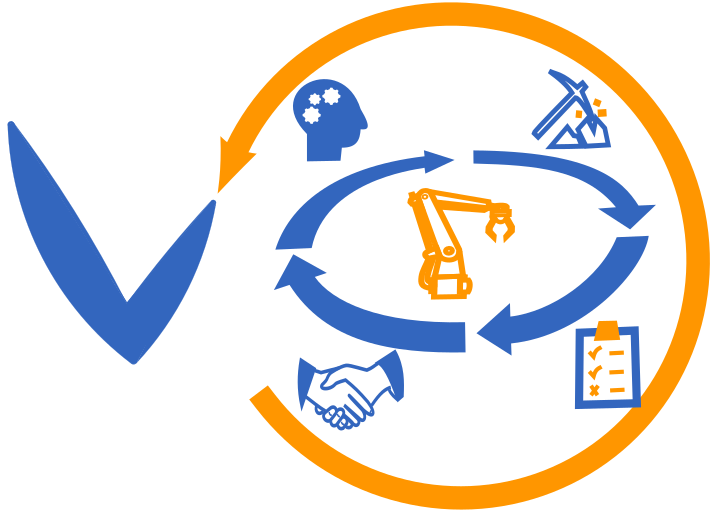FMEA
IATF Coretools
Process improvement
Industrial statistics
Process capability
Measurement means
Project management
Scheduling
Mechanical design
Quality standards
Risk management
Supplier quality

Core Tools IATF 16949 : 2016 APQP (+Control Plan), Design / Process FMEA, MSA, PPAP, SPC + Reverse PFMEA
3
days
100 %
Of attendees in this course recommend it.
(Average rating on all sessions in 2023)

8.7/10
Attendees are satisfied with this trainings.
(Average rating on all sessions in 2023)
"
La formation Core tools a répondu parfaitement à mes attentes. Le support et le guide de formation sont clairs et de qualités. Merci au formateur qui est très pédagogue et qui maitrise ses sujets !
"
Sovanna, VISION SYSTEMS
(02/05/2022)
"
Très bonne formation, complète avec un bon niveau d'informations. Très bon feeling avec le formateur qui est compétent et maitrise son sujet.
"
Lise, ARAYMOND
(28/08/2023)
"
Très bonne formation. Le formateur a répondu à toutes mes questions. Je recommande cette formation en ligne très instructive.
"
Sandrine, Autoliv
(21/03/2022)
"
Formateur à l'écoute, et propose des réponses à des questions poussées et pratiques.
"
Mohamed, VALEO
(30/05/2022)
"
J'ai apprécié l'alternance de la théorie avec les workshop. Le fait de manipuler les outils tels que FMEA, capabilité, etc.... permet de mieux appréhender l'application sur le terrain par la suite.
"
Fabrice, MARECHAL ELECTRIC
(16/01/2023)
Overall objectives
- Understand the benefits of the IATF 16949 Core Tools : Know how to apply them in the industrial context of the participants. (APQP, PPAP, DFMEA, PFMEA, MSA, SPC, Control Plan).
Learning operational objectives
- Know the APQP Process, its steps and the activities/deliverables associated to each of its steps.
- Know when to use the different Core Tools during a project planned according to the APQP and understand the links that exist between the Core Tools.
- During its DFMEA & PFMEA parts, the training applies the recommandations of the latest FMEA Handbook AIAG/VDA of June 2019.
- For the DFMEA & PFMEA parts of the training: Know how to be more efficient & active when conducting an FMEA:
- Prioritize and focus risk analyses, as early as possible after project start, on the most critical product functions & process steps.
- Use this early risks prioritization to decide the re-use of generic parts of DFMEA & PFMEA.
- Gain time by filtering some activities.
- Optimize the Control Plan thanks to techniques allowing to focus efforts on Prevention rather than on Detection and on Process Characteristics rather than systematically on Product Characteristics.
- Practice the creation of a part of Control Plan following the realization of the Process FMEA, according to the requirements of IATF 16949 : 2016.
- Understand how to apply the rules relative to Special Product and Process Characteristics (identification, notation, association of symbols) when using the Core Tools (according to IATF 16949 : 2016 requirements and applicables Customer Specific Requirements).
- Understand and apply the IATF 16949 Customer Specific Requirements applicable to the Core Tools in the industrial context of the participants.
- If necessary, know how to realize a Reverse PFMEA on the participants' own manufacturing processes.
The "Pluses" of the training session
- Training tailored on examples of internal products and manufacturing processes of the organizing company (Case study used if necessary). Workshops made on these examples.
- Theoretical parts organized in a dynamic and interactive way (workshops in subgroups, quizzes, questions, etc.).
- This training includes a 6-months period of post training support (email exchanges, webinars, phone, response time depending on the trainer’s availability).
Organization and resources
- Each attendee receives a training manual in English as well as exercise and workshop files used during the session.
- For face-to-face training, the room must have a video projector as well as a flipchart and a whiteboard with coloured markers in working order.
Evaluation mode
- Level assessment quizzes for each attendee at the beginning and the end of the training session.
- Hot satisfaction questionnaire completed by each attendee at the end of the training.
- Cold evaluation questionnaire, to evaluate achievements realized after the training completed 3 months after training, by each attendee, with their hierarchy.
Targeted audience
- Anyone involved in the imlementation of development and industrialization of an industrial product or process.
Prerequisite
- Participants should have an experience of the products and manufacturing processes of the company organizing the training.
- At least 1 year professional experience in either production, project management, industrial engineering, quality, product design and engineering.
Trainer profile
- Holds master’s diploma from top tier engineering school (Centrale, INSA, Arts et Métiers, UTC). Equivalent to Master's degree in industrial engineering.
- 20 years of experience in industrial design and process development methodologies (functional analisis, FMEA, etc.) and in industrial statistics (tolerance analysis, functional quotation, capabilities analysis of measurement and manufacturing means, etc.).
Useful information
Available packages
- Face-to-face
- Online
- Intra-company
- Shared training
Accessibility
All persons with disabilities, people with reduced mobility, visually impaired and hard of hearing, can attend all our training courses, provided that they report it as soon as possible so that we can adapt the premises and training ressources to their needs.
